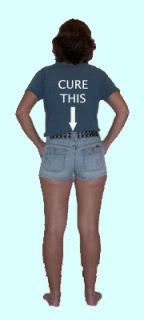Roses

I've been reflecting on how much our society's understanding of neurodiversity, like my rose garden, has grown over the past five years. At the end of 2004, shortly before I started blogging, typing "neurodiversity" into a search engine yielded very few results. Finding a new self-advocate website or a parent site that wasn't doom and gloom was like discovering an oasis in a vast scorching desert of intolerance.
At that time Kathleen Seidel had just recently set up neurodiversity.com and was busily working on her collection of links, but there weren't many positive sites for her to add. Amy and Gareth Nelson had a forum for parents on Aspies for Freedom, which was also a new site, and were trying to get a constructive dialogue started between autistic rights activists and parents. One of the parents who joined that forum in early 2005 was Kevin Leitch, the Autism Hub's founder. Dave Seidel later took over as administrator of the Hub, with his helpful sidekick HJ, contributing a huge amount of time and energy for which they deserve recognition.
The Hub took a lot of criticism over the years for having an angry tone, frequent arguments that were often less than constructive, too much emphasis on anti-quackery blogging at the expense of other important issues, and lack of effective action to prevent bullying by various individuals and factions. All of these things did indeed happen, and some other annoying stuff besides, as to which I was not blameless and don't claim to be.
But the Hub was also a wildly successful online diversity seminar, quite possibly one of the most successful in history. Its participants and readers came away with their assumptions challenged and their understanding of others' perspectives broadened. After encountering the Hub, many readers became inspired to start their own pro-neurodiversity websites and to work toward improving conditions for autistic people in their communities.
The mainstream media started to notice what was going on. At first there were only a few scattered articles suggesting that the neurodiversity movement was an odd little fringe group. The event that really got their attention was the Ransom Notes protest, described in detail here, which was a successful effort in December 2007 by Hub bloggers and others organized by the Autistic Self Advocacy Network to shut down a very nasty billboard advertising campaign that was comparing autistic children to kidnap victims.
Journalists writing about autism politics soon began interviewing neurodiversity proponents on a regular basis, having now recognized that they were dealing with a fast-growing civil rights movement. Politicians took notice when self-advocates gave testimony before legislative committees and agencies, which led to autistics being appointed to policymaking positions with autism commissions and other entities. Local autism societies made more efforts to ensure self-advocate participation in their leadership. Researchers gave more consideration to the ethical concerns and practical needs within the autistic community.
The implosion of the Autism Hub, although it marks the end of an exciting time when the blogs were at the forefront of a major cultural shift, was not a defeat for autistic civil rights or for the concept of neurodiversity. On the contrary, it's now clear that we won the first battle. We made people understand that they were looking at human beings, not at monsters or changelings. We did an effective job of consciousness-raising in the autistic community.
This blog, in particular, has accomplished everything that I set out to do with it five years ago. Now the time has come, as I wrote in early April, to focus on the less dramatic changes that need to be made—the development of effective educational programs and support structures and employment regulations to ensure that every autistic person can be an equal participant in our society.
To everyone mentioned above, and to the many people I haven't mentioned in this post who also took part in laying the groundwork for a better future, I leave you with a bouquet of virtual roses and my deepest gratitude as I post my last entry here. My best wishes to you all.
Labels: activism, autistic community, blogging, gardening, neurodiversity




